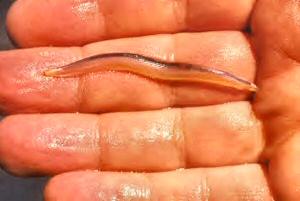Pax Nortona – A Blog by Joel Sax
From the Land of the Lost Blunderbuss
Home - Spirituality and Being - Agnosticism - Hit and Run
Hit and Run
Posted on December 18, 2005 in Agnosticism Crosstalk Evolution & Creation
 There are times when a blogger makes an utterance which leaves me totally in awe of his inability to perceive matters. Read this a few times and let me know if you think he’s saying anything significant or just pulling one of those hit-and-runs that extremists in the God or No God controversy like to pull:
There are times when a blogger makes an utterance which leaves me totally in awe of his inability to perceive matters. Read this a few times and let me know if you think he’s saying anything significant or just pulling one of those hit-and-runs that extremists in the God or No God controversy like to pull:
My understanding has always been that it means “someone who believes it is impossible to know if god exists,” or believes it impossible in terms of the limits of human understanding. But that seems to me to either describe just about everyone or to describe just about no one.
Strange math there.
Atheists and believers both shy from agnosticism for the same reason: around the certainty of our senses, we admit to uncertainty. The problems of both are well-known to everyone else except in this one truth: both are obsessed with certainty and final authority about the nature of the universe.
The atheist who wrote this and Creationists appear to share the view that human intelligence is the end of evolution and or creation, that our minds are the most finely adjusted instruments ever to observe the universe. The agnostic, on the other hand, looks over life in a different way, avoiding the fallacy of a Ladder. As life is still evolving, we cannot be sure just ~what~the end of evolution will be. And, furthermore, while we may be able to detect lesser intelligences, what makes us think that we can detect larger ones?
I think, now, of a feathery swimmer called a “lancelet”, a chordate (with cartilage instead of a backbone) whose “eye” is particularly important because it is thought to have been the model upon which the human eye is based. Lancelets don’t really have eyes: they have light-sensing organs. Light comes in through a slit, bounces off reflective skin within a pocket, and then onto a screen which tells the lancelet “there’s something out there”. And that’s it. It sees the difference between light and darkness, nothing more.
The lancelet may have no clue that we exist or what we’re about. Amoebaes have no clue about intelligence and therefore probably never notice us. We are the most sophisticated sensing machine on the planet Earth with the ears, the eyes, the nose, the tongue, and the skin all possessing different ways of receiving tactile information (it’s all tactile when you think about it). The brain can process that different information and make decisions based on a multi-dimensional model of the world around us. We assume that there is nothing more sensitive than we are.
Yet we are unable to conceive of the world as a dog knows it through her nose.
We can detect photons, scents, a limited span of tastes, sound waves, and clumps of molecules. We cannot know the spectrum of radio waves directly. And what is there to be touched beyond that? When we shock ourselves with a wire, our sensation of it is crude. We don’t get it as textured. It’s just pain. And what we actually feel is our nerves warning our brain and adjacent cells of Shiva the Shock. Our sensation of electricity is analogous to how a lancet perceives light.
Now think of an amoeba or a sponge or any blind creature. Their “light-consciousness” is nil. Yet they, too, live.
Again we come to the question: without our senses, does an amoeba have any idea of its existence?
Sponge divers end the lives of sponges all the time. Amoebas die in boiling water and they have no clue how it happened. Most of the time, these creatures just go on. So do we.
I stop at answering the “God question” simply because when I look back at the panoply of life and ahead of me at the vastness of the universe, I appreciate just how limited my human intellect is. The Atheist and the Creationist seem to be in an endless battle to determine whose version of “Man-Is-The-Smartest-Creature-Ever-To-Appear-In-The-Universe” triumphs. What if it doesn’t matter? I don’t think that human beings have the intellectual power to determine what exists beyond what we can sense. A thinking engine that could would have to be, as Michael Shermer points out, omnipresent, omniscient, and omnipotent. Which we are not. So who are we to say that we can or can’t prove the existence of a God-Thing?
More importantly, why should it take up our time?

Found through Lindsay Beyerstein.

